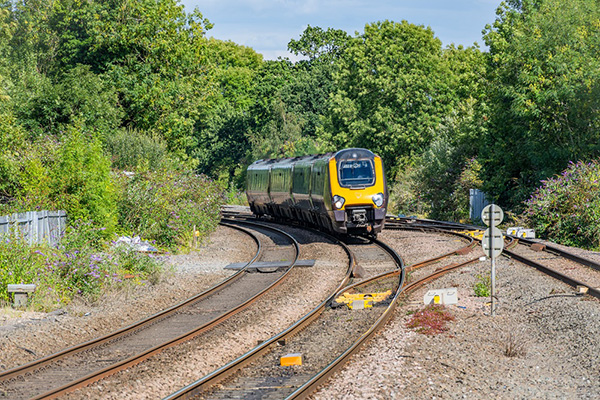Discover the key steps that rail operators can take to increase their sustainability credentials and offset current carbon emissions.
By Richard Moss, Instarmac
When it comes to eco-conscious travel and freight, the rail industry provides a more sustainable alternative to road travel and flight. Train freight is 80% less energy-intensive than trucks per ton of freight carried, and creates four times less emissions than cars.
However, there remains significant room for improvement – just 38% of the rail network is currently electric.
Research indicates that sustainability is a one of the top four purchase drivers for half of customers in the UK – so investing in green operations could make a huge difference in terms of net zero, as well as providing a differential competitive advantage.
Here, Richard Moss, Head of Civils at Instarmac, provider of rail refurbishment solutions, covers how rail providers can support the fight against climate change.
Rail providers across the UK are currently switching to electric fleets – but there’s also scope to reduce emissions on existing diesel trains, through driving and operating them in a more considered, efficient manner.
BCG research indicates that incentivising train drivers to be more efficient could reduce energy usage by around 10%, via:
Inefficient brakes are doing little to reduce the rail industry’s emissions output. Utilising regenerative braking, a recent technology that harnesses the kinetic energy generated through braking to power the trains themselves, can help. These are already being used on Thameslink’s Class 700 trains, which are up to 50% more efficient than their predecessors.
Technology throughout today’s trains present new opportunities to become more efficient; devices with IoT (Internet of Things) integration can be used to automatically reduce power usage in carriages when the train is idle.

For the most part, passengers choose rail travel because it’s faster or more sustainable. But with rail fares increasing by a further 5% in 2024, train operators should explore customer perks to convince more customers to travel with them, filling a greater percentage of seats in the process.
Many operators now offer free WiFi as standard, which is a key perk for hybrid-working commuters. Others are offering pre-ordered food services, so customers can beat the rush and enjoy food delivered to their seat. Loyalty schemes with cashback or rewards could also encourage customers to choose rail over alternative travel methods.
Even with greener methods of operating trains, the rail industry will continue to contribute to carbon emissions – but through carbon offsetting, this impact can be reduced.
For example, Network Rail is supporting a £1m scheme that will plant over 80,000 new trees to offset the emissions of the rail sector. Carbon credits, issued by initiatives like Carbon Neutral Britain, can help rail providers to fund sustainable projects and offset the production of CO2.
By purchasing a number of carbon credits related to your trains’ emissions, rail companies can neutralise their output. These can then be used to finance sustainable projects, delivering equal carbon savings and negating train operators’ impact on the environment. These projects can take many forms, from promoting renewable energy schemes to supporting tree-planting and forest preservation.
The most effective way that rail providers can improve sustainability is through the electrification of their networks. The fight must take place on a number of fronts, however. By making rail a more attractive mode of transport for travellers, improving the efficiency of trains through new technologies and driver education and carbon offsetting, today’s train operators can reach carbon neutrality – or even carbon negativity!

About the Author:
Richard Moss is Head of Civils at Instarmac, a specialist company in the manufacture and distribution of cement and bitumen-based products. Moss has spent ten years with the company, working closely with the company’s UltraScape and UltraCrete brands – the latter of which is used extensively in the UK’s road and rail industries.
About Instarmac:
Instarmac is a multi-award-winning specialist with a solid reputation based on the research, development and production of innovative materials for use in highway maintenance, urban regeneration, tiling, commercial flooring and internal finishing sectors.
Find out more: https://www.instarmac.co.uk/about-us/
Scott Ellyson, CEO of East West Manufacturing, brings decades of global manufacturing and supply chain leadership to the conversation. In this episode, he shares practical insights on scaling operations, navigating complexity, and building resilient manufacturing networks in an increasingly connected world.